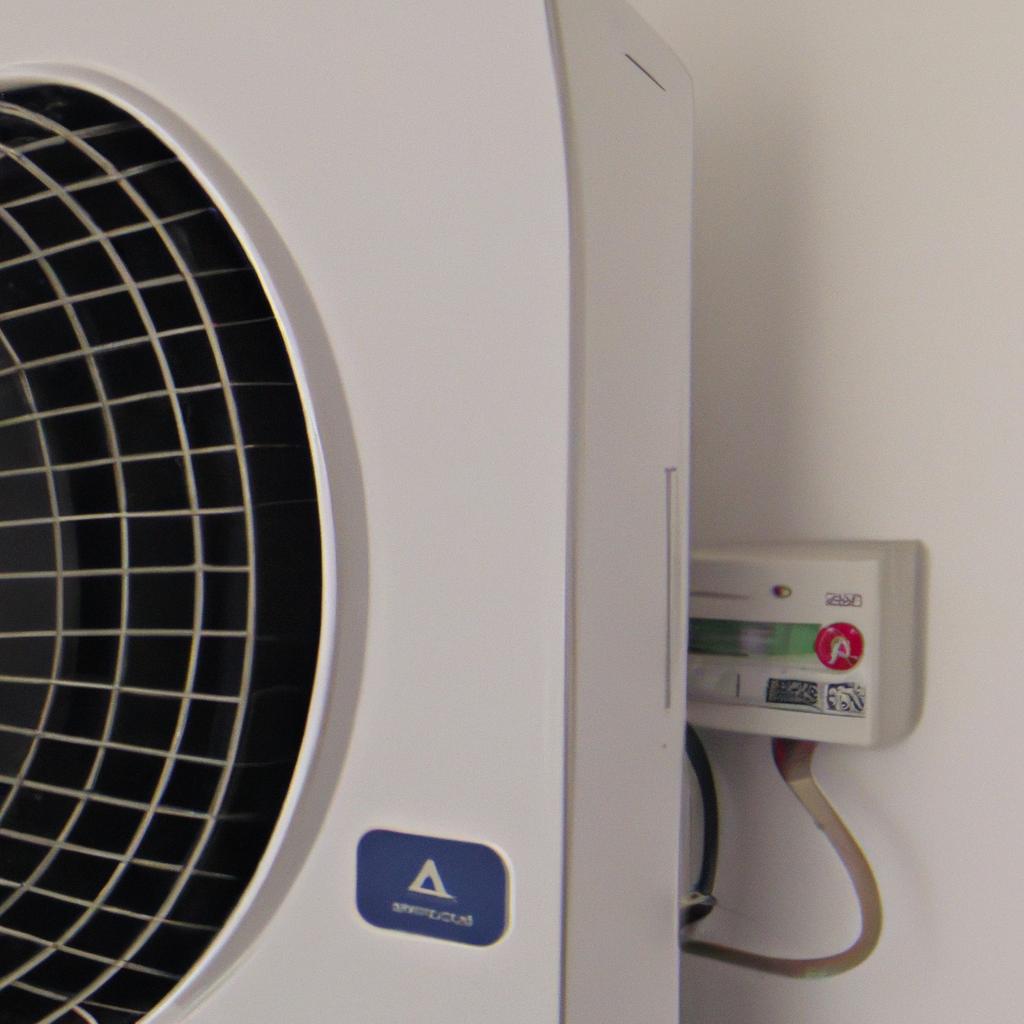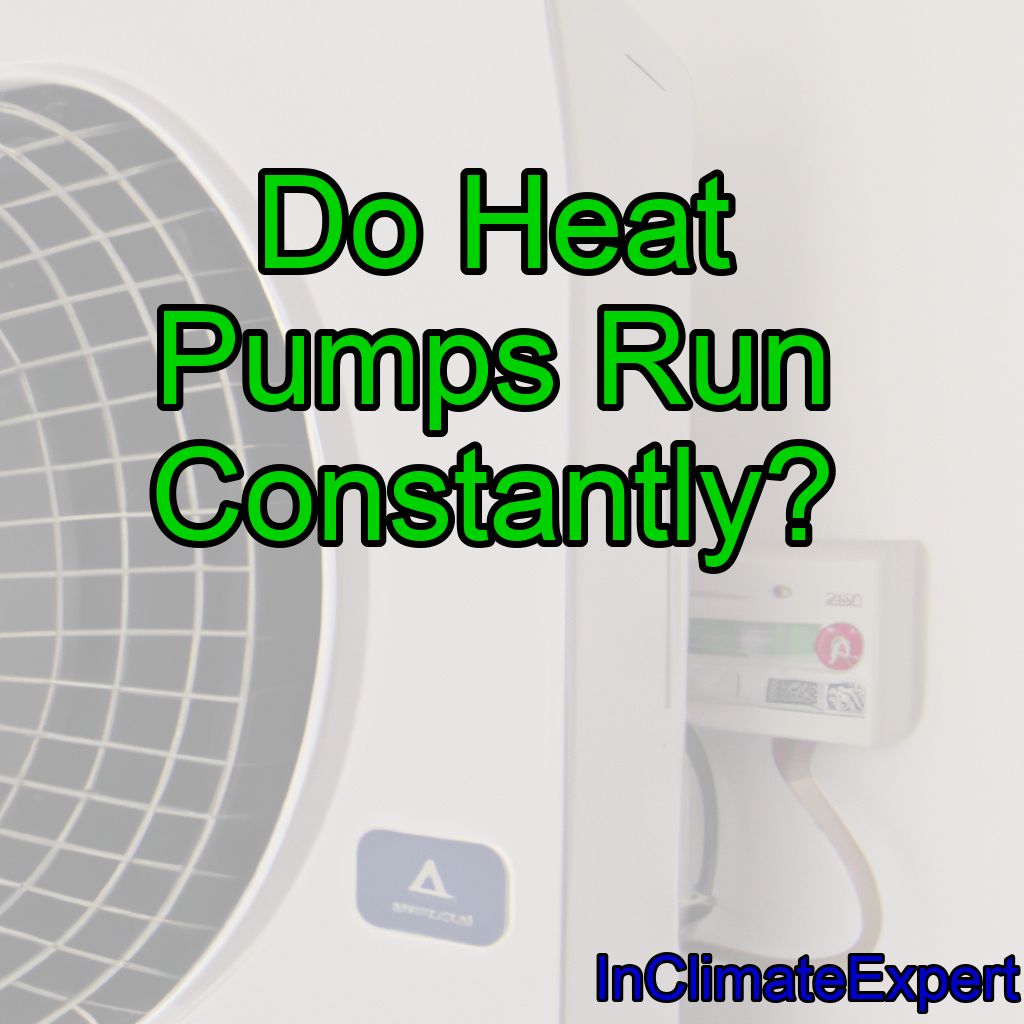Do you ever wonder if your heat pump is running constantly?
Heat pumps do not run constantly, but their run time depends on various factors such as the outdoor temperature, the desired indoor temperature, the efficiency of the heat pump, and the insulation of the building. To maintain a comfortable indoor environment, heat pumps may run more frequently during extreme weather conditions or when the temperature difference between indoors and outdoors is significant. Proper maintenance, insulation, and thermostat settings can help optimize the heat pump’s performance and reduce its run time.
Heat pumps are a popular choice for many homeowners due to their energy efficiency and ability to both heat and cool a home. However, it can be concerning if you notice that your heat pump seems to be running non-stop.
First, it’s important to understand that heat pumps operate differently than traditional heating systems. They work by transferring heat from the outdoor air or ground into your home during the winter months, and then reversing the process in the summer to cool your home.
This means that during colder temperatures, your heat pump may need to run more frequently in order to maintain a consistent indoor temperature. But how much is too much?
Let’s explore whether or not heat pumps run constantly and what factors may contribute to increased usage.
What Is A Heat Pump?
A heat pump is a heating and cooling system that works by transferring heat from one location to another.

Unlike traditional heating systems, which generate heat by burning fuel, a heat pump moves heat from outside the home to inside during the winter months and vice versa in the summer.
Heat pumps use a refrigerant cycle to move heat, working similarly to an air conditioner in reverse.
This process makes them incredibly efficient, as they can provide up to three times more heating or cooling than the electrical energy they consume.
However, there are factors that can impact a heat pump’s efficiency, such as its size, installation location and maintenance schedule.
Heat Pump Efficiency
You may be wondering if heat pumps run constantly, and the answer is no. Heat pumps are designed to cycle on and off as needed to maintain a comfortable temperature in your home.
This cycling is controlled by a thermostat, which senses the current temperature and adjusts the heat pump accordingly.
While heat pumps do not run constantly, their efficiency can be impacted by a number of factors.
One important factor is proper sizing and installation.
If your heat pump is too small for your home or installed improperly, it may have to work harder than necessary to maintain a comfortable temperature.
Regular maintenance, such as changing air filters and cleaning coils, can also help improve efficiency and extend the lifespan of your heat pump.
As you can see, there are many factors that contribute to the efficiency of a heat pump. In the next section, we will explore how heat pumps work and how they can be optimized for maximum efficiency.
How Heat Pumps Work
If you’re wondering if heat pumps run constantly, the answer is not exactly. While they do run more often than traditional heating systems, they are designed to cycle on and off based on the thermostat settings and current temperature.
Heat pumps work by extracting heat from the air outside (even in cold temperatures) and transferring it indoors to warm up your living space.
During colder months, heat pumps may run for longer periods of time as they work to maintain a consistent temperature inside your home. However, this does not mean that they will constantly run without a break.
In fact, many newer models have advanced features such as variable speed motors that can adjust the amount of energy used based on the specific needs of your home.
When it comes to alternatives to constant running, there are several options available.
One popular solution is using a programmable thermostat to set specific temperatures for different times of day.
This allows you to reduce energy usage when you’re away from home or sleeping while still maintaining a comfortable living environment.
Additionally, regular maintenance on your heat pump can help ensure that it’s working efficiently and not overworking itself unnecessarily.
Alternatives To Constant Running
While heat pumps may seem like a reliable source of heating and cooling, many homeowners wonder if the constant running is necessary. Fortunately, there are alternatives to this continuous operation that can help you save energy and money.
One option is to install a programmable thermostat, which allows you to set specific temperature levels for different times of the day. This can help regulate your home’s temperature without requiring the heat pump to run constantly.
Another alternative is to supplement your heat pump with other heating sources, such as a wood stove or space heater.
This can help reduce the workload on your heat pump and provide additional warmth in specific areas of your home.
If you’re still experiencing issues with your heat pump running constantly, it may be time for an upgrade. Newer models are designed to be more energy-efficient and have advanced features that allow for better temperature control.
It’s important to consult with a professional HVAC technician before making any decisions about upgrading or replacing your existing system.
With the right solutions in place, you can enjoy comfortable temperatures without constant running and high energy bills.
Conclusion
So, do heat pumps run constantly?
The answer is no, but it’s important to understand why. Heat pumps work by transferring heat from one location to another, but they do so at a slower pace than traditional heating systems.
This means that they may need to run for longer periods of time in order to maintain a comfortable temperature in your home.
However, this doesn’t mean that your heat pump should be running constantly. In fact, if it is, there may be an issue with the system that needs to be addressed.
Proper maintenance and regular servicing can help ensure that your heat pump is running efficiently and effectively.
Ultimately, the key to maximizing the efficiency of your heat pump is to find the right balance between comfort and energy consumption. This may require some trial and error, but with patience and persistence, you can find the sweet spot that works best for you and your family.




